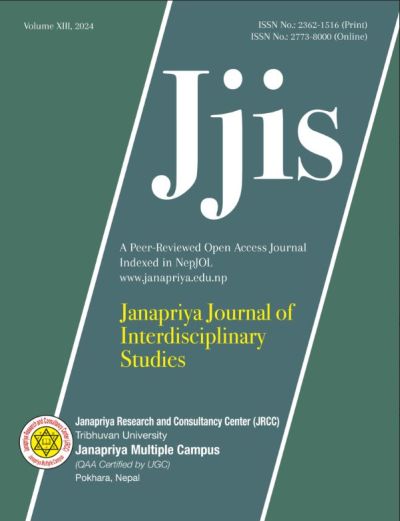Socio-Economic Impacts of Ecotourism Activities Around the Rupa Lake of Kaski, Nepal
DOI:
https://doi.org/10.3126/jjis.v13i1.75530Keywords:
Conservation, Community participation, economic leakage, inclusiveness, local economy, wetlandAbstract
Ecotourism is a sustainable approach to tourism development that aims to positively impact socio-economic conditions and the environment. This study assesses the socio-economic impact of ecotourism activities around the Rupa Lake area. Primary data were collected through semi-structured questionnaires and interviews with residents involved in lake conservation activities, supplemented by field observations. Additionally, key information was obtained from interviews with officials of the Rupa Lake Fishery and Restoration Cooperative Limited (RLFARCL). A mixed-methods research design, incorporating both qualitative and quantitative approaches, was employed to analyze the data using statistical tools in MS Excel and SPSS. The findings reveal a significant increase in food and accommodation services, including Khaja-Ghar, lodges, restaurants, and hotels, most of which operate for six to nine months annually. The rapid establishment of tourism businesses over the past decade has boosted self-employment but has provided limited employment opportunities for non-family members. The study indicates a gradual increase in ecotourism activities and improvements in tourism infrastructure in the Rupa Lake area. Local people exhibit a positive attitude towards conservation and ecotourism development. Therefore, skill-development training for ecotourism promotion, sustaining livelihoods, and encouraging local participation is recommended.
Downloads
Downloads
Published
How to Cite
Issue
Section
License
Copyright (c) 2024 The Author(s)

This work is licensed under a Creative Commons Attribution-NonCommercial 4.0 International License.




